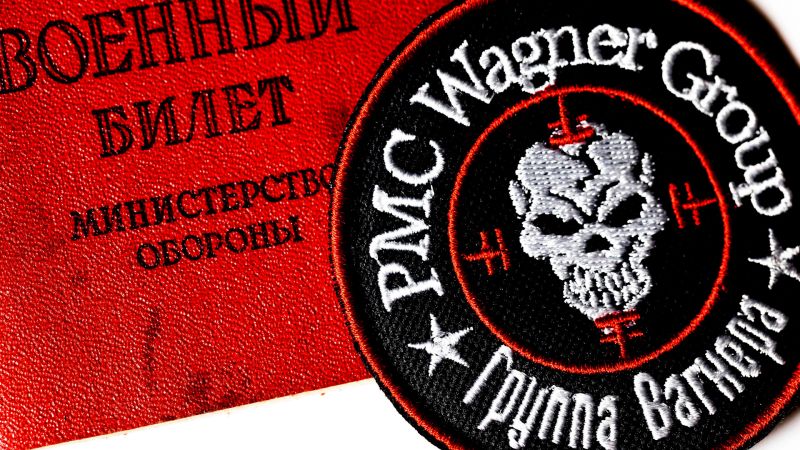Accountability for crimes of personnel of the Wagner Group in Ukraine

This briefing paper discusses the status of personnel of the Wagner Group under international humanitarian law (IHL) and the implications of such status for their prosecution for crimes committed in Ukraine.
The briefing paper first considers the status of personnel of private military companies (sometimes also referred to as private military and security companies) and implications for their prosecutions under IHL. Second, it analyzes the status of personnel of the Wagner Group in Ukraine, including specifically by considering whether those individuals form part of Russia’s armed forces. Finally, the briefing paper examines the implications of the status of Wagner Group personnel for the prospect of prosecuting them and holding them accountable for crimes committed in Ukraine.
Status of personnel of private military companies under IHL
The status of personnel of private military companies in an armed conflict is determined by IHL. Personnel of private military companies in an international armed conflict are either civilians or combatants. This primary status as a civilian or combatant determines: (a) whether the individual is entitled to directly participate in hostilities; (b) whether, upon capture, they are entitled to prisoner-of-war status; and (c) the basis upon which they can be prosecuted. The status of the personnel is a factual question which will be determined on a case-by-case basis.
Combatants are entitled to participate in hostilities and can be targeted directly at any time during an armed conflict. Upon capture, combatants are typically entitled to prisoner-of-war status. Private military companies, which are (a) organized and (b) under a command responsible to a State party to the conflict, are part of this State’s armed forces. Personnel of private military companies which are part of the armed forces are combatants. The “organized” criterion is flexible and will cover different degrees of organization. The “responsible command” criterion is more unclear and has not yet been resolved by courts. It suggests that the State party to the conflict should exercise some degree of control and coordination over the activities of the group. Captured combatants are entitled to prisoner-of-war status if they distinguish themselves from the civilian population or if they always carry their arms openly during every military engagement and when deploying to prepare for an attack. Personnel who are combatants and entitled to prisoner-of-war status are immune from prosecution for acts that are lawful under IHL and, thus, cannot be prosecuted merely for having participated in hostilities. Like other combatants, however, personnel of private military companies who qualify as combatants under IHL can be prosecuted for their individual criminal responsibility for specific international crimes.
Personnel of private military companies who are not combatants are civilians. As such, they are not entitled to participate in hostilities. They cannot be targeted directly, except at such times as they participate in hostilities. Upon capture, they are not entitled to prisoner-of-war status. Like other civilians, personnel of private military companies who are not combatants can be prosecuted for merely having participated in hostilities and for domestic crimes.
In addition to this core framework, additional rules may apply to two special categories of civilians: (1) mercenaries and (2) civilians who accompany the armed forces. There may be additional obligations to prosecute the small number of civilians who fit the extremely narrow definition of a mercenary under IHL. And, as an exception to the general rule that civilians are not entitled to prisoner-of-war status, those civilians who accompany the armed forces are entitled to prisoner-of-war status upon capture. The definition of a civilian accompanying the armed forces rules out any personnel who take part in military operations and hostilities.
Where there are doubts as to the status of detained personnel of private military companies as either combatants or civilians, these individuals must be given prisoner-of-war status until their status has been determined by a tribunal.
Status of Wagner Group personnel in Ukraine
Based on open-source information currently available, it may be difficult to make a definitive statement at this juncture that the Wagner Group forms part of Russia’s armed forces. Some facts certainly suggest such a finding and, as such, captured Wagner Group fighters should be treated as combatants. It is quite apparent that the Wagner Group is very “organized”, given its ability to conduct complex military missions, its sophisticated logistical coordination, its strict military discipline, and its ability to speak with one voice. But not much is publicly known about the Wagner Group’s specific command structure.
And while there is much evidence that Russia has organized, coordinated, and planned the military actions of the Wagner Group, it is difficult to definitively conclude that the Wagner Group is under a “command responsible” to Russia. Additionally, the opaqueness of the relationship may lead Russia to claim plausible deniability.
Implications for accountability
If an individual Wagner Group detainee qualifies as a combatant, they could be prosecuted for committing alleged international crimes in Ukraine. This individual could be prosecuted by the International Criminal Court, a special tribunal with appropriate jurisdiction, or by a third country under the principle of universal jurisdiction. States have an obligation to prosecute or extradite such individuals found on their territory.
There is also a question under international law as to whether Russia could bear State responsibility for the conduct of Wagner Group personnel in Ukraine, if Russia exercised “effective control” over the Wagner Group.
Finally, the June 2023 mutiny suggests that the Wagner Group’s relationship with Russia and the factual circumstances have changed, which may alter the analysis below. But it is too soon to tell.
Full document — by link.

